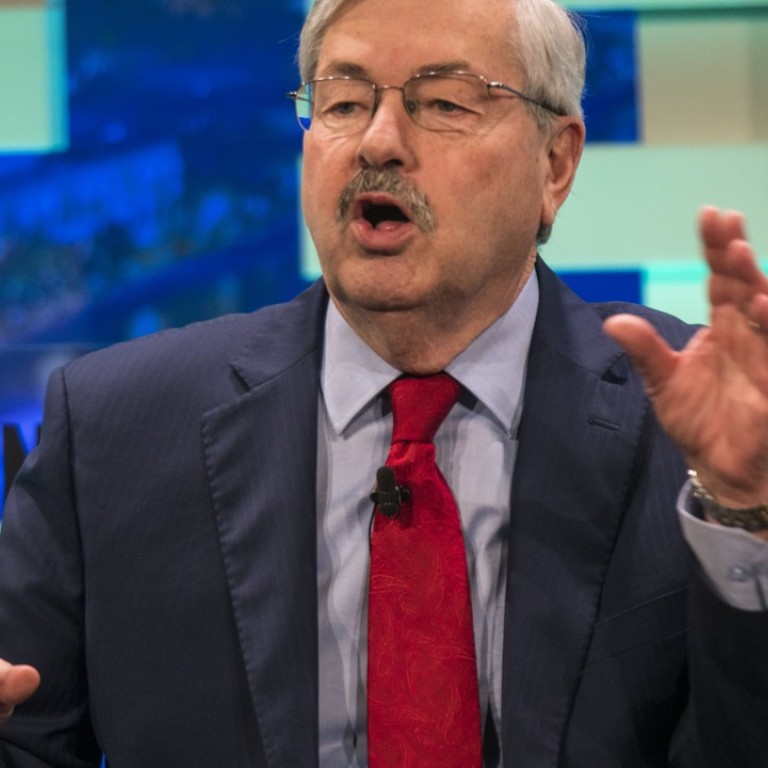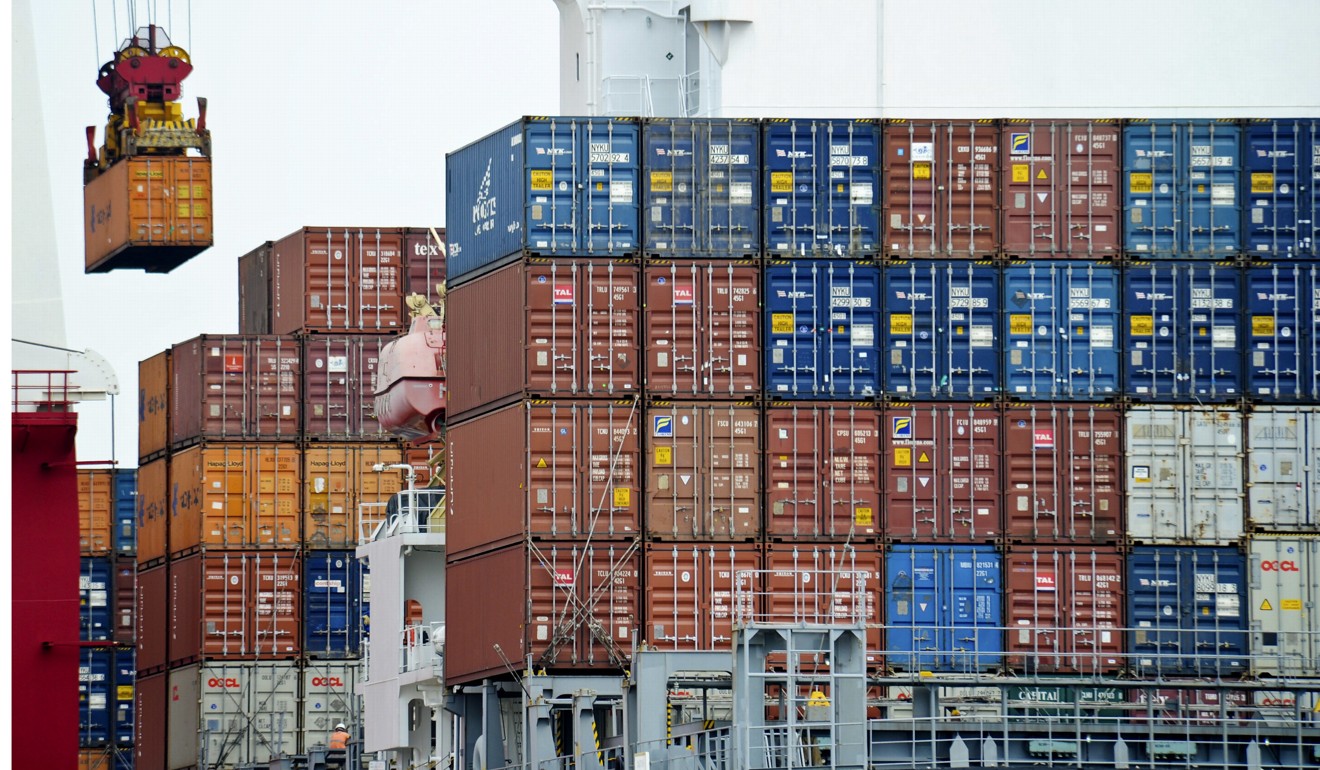
Getting China-US investment treaty approved will be tough, ambassador Terry Branstad says
Top envoy also says North Korea is ‘biggest threat to humankind right now’ – and China and the US could stop it
America’s top envoy to China has warned that getting approval – from both sides – for the long-proposed bilateral investment treaty between the United States and China is going to be tough.
The treaty would need a two-thirds majority in the US Senate and getting it approved would be “very difficult”, Terry Branstad said on Wednesday during a panel session at the Fortune Global Forum in the southern city of Guangzhou.
“And if we were able to get all the support of the United States Senate, I can’t imagine it would be approved in China.”
Negotiations for the treaty to ensure equal investment opportunities for both countries – which began in 2008 – have been languishing and the administration of US President Donald Trump has not made a decision as to whether to continue with the talks.
“I think that is the difficulty, that the administration has not made the decision whether to go forward with that. But at this point in time, I think it would be a very difficult task – both to get the agreement with China, but to get the agreement that would be acceptable to get the bipartisan two-thirds majority for confirmation in the United States Senate,” he said.
The US ambassador to China also said the economic relationship between the two nations had grown significantly since his first visit to the country in 1984 on a trade mission.
China was now the largest US trading partner and its biggest export market outside North America, he said, describing the numbers as “staggering”. Bilateral trade had exceeded US$650 billion, he said.

“There is much to be optimistic about. But there are also parts of the economic relationship that we are less happy with,” Branstad said. “Trade between China and the United States has not been fair for a long time now. Goods and services offered by the United States face an increasingly uneven playing field here in China.”
Nearly 20 years after it joined the World Trade Organisation, China was far less open to US exports and investments than the US was to exports and investments from China, Branstad said.
“We would like to see a fair and reciprocal commercial relationship with China, and we want to see meaningful progress towards that goal,” he said.
Branstad also said the two countries should be doing more to rein in North Korea, which was on “a suicide mission that makes no sense”.
Asked why Trump had not visited North Korea – similar to the strategic and diplomatic overture made by former US president Richard Nixon when he went to China in 1972 – Branstad said the timing might not be right.
“That could happen sometime in the future, but certainly not now,” he said at the forum.
In a separate interview with CNBC on Wednesday, Branstad said North Korea was now the biggest threat to humankind, and China and the US could stop it.
“What’s happening with [North Korea’s] illegal and aggressive development of nuclear weapons and ballistic missiles ... This is the biggest threat to humankind right now,” he told CNBC in Beijing.
“I want to compliment the Chinese for the changes they’ve made in the last three months, they’ve supported both of the resolutions passed by the United Nations Security Council and I believe they’re working hard to enforce the sanctions,” he said.
“But I think there’s still more that needs to be done. We need to keep on working together and we share the conviction that we need to denuclearise the Korean peninsula, and China and America can play a key role in working with the rest of the world.”
Additional reporting by Sarah Zheng

